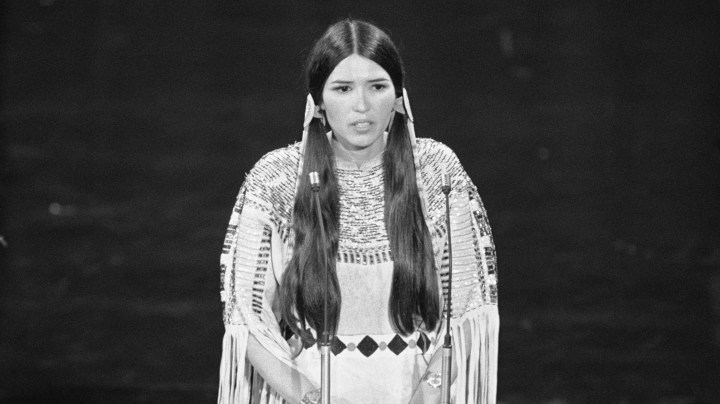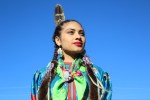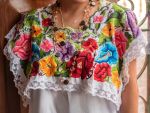Was Sacheen Littlefeather Mexican? — Here’s What Her Sisters Say & Why There’s Been Swift Pushback

Sacheen Littlefeather (born Marie Louise Cruz, 1946 - 2022) speaks at the 45th Academy Awards. On behalf of Marlon Brando, she refused the Best Actor award he was awarded for his role in 'The Godfather'. Brando refused the award because of the treatment by the Americans of the American Indian.
In a shocking opinion column published by the San Francisco Chronicle on Saturday (October 22), Native American writer and activist Jacqueline Keeler shared a pair of interviews she conducted with the estranged sisters of actress and activist Sacheen Littlefeather.
Littlefeather was most famous for taking the stage at the Academy Awards ceremony in 1973 to decline the Best Actor award on behalf of Marlon Brando for his role in The Godfather. The legendary actor boycotted the awards to protest the portrayal of Native Americans in Hollywood.
As a Native American icon for the last nearly half-century, Littlefeather claimed her father was of Apache and Yaqui ancestry. However, according to her biological sisters, Rosalind Cruz and Trudy Orlandi, and through research done by Keeler, Littlefeather, who died earlier this month at the age of 75, apparently does not have Native American roots at all. Instead, they say, she’s Mexican-American.
“My father was who he was,” Orlandi told Keeler. “His family came from Mexico. And my dad was born in Oxnard.” Cruz added: “It is a fraud. It’s disgusting to the heritage of the tribal people. And it’s just…insulting to my parents.”

Keeler writes: “Littlefeather’s sisters both said in separate interviews that they have no known Native American/American Indian ancestry. They identified as ‘Spanish’ on their father’s side and insisted their family had no claims to a tribal identity.”
As soon as the column ran, many on social media started pushing back on the allegations of fraud because of the author of the piece itself. Keeler is known to many as the creator of a “Pretendians” list, which is a list of people who claim to be Native, but that Keeler suspects are not.
According to Variety, “While Pretendians are genuine threats to Native people, sucking the oxygen from authentic Native voices, the vicious practice of trying to destroy reputations posthumously doesn’t feel right, either. Especially when the writer has been called out for faulty reporting in the past.”

And that’s without taking into account that Keeler has been accused of being anti-black and targeting those who are “too black” for her.
Keeler’s opinion piece also is being called out as a narrow-minded view of Indigenous Peoples identities and ignores the realities of how many people were forced into white identities as a means of erasing and stripping them of their land, language, and more.
Even now, census taking in the U.S. narrows down our identities to the following categories with no understanding of how nuanced communities really are: White, Black or African American, American Indian or Alaska Native, Asian, Native Hawaiian or Other Pacific Islander, and Some Other Race.

That’s why Sacheen Littlefeather’s situation, when it comes to her identity, is something worth examining more thoroughly while actively listening to the Indigenous Peoples and Native Americans within these communities.